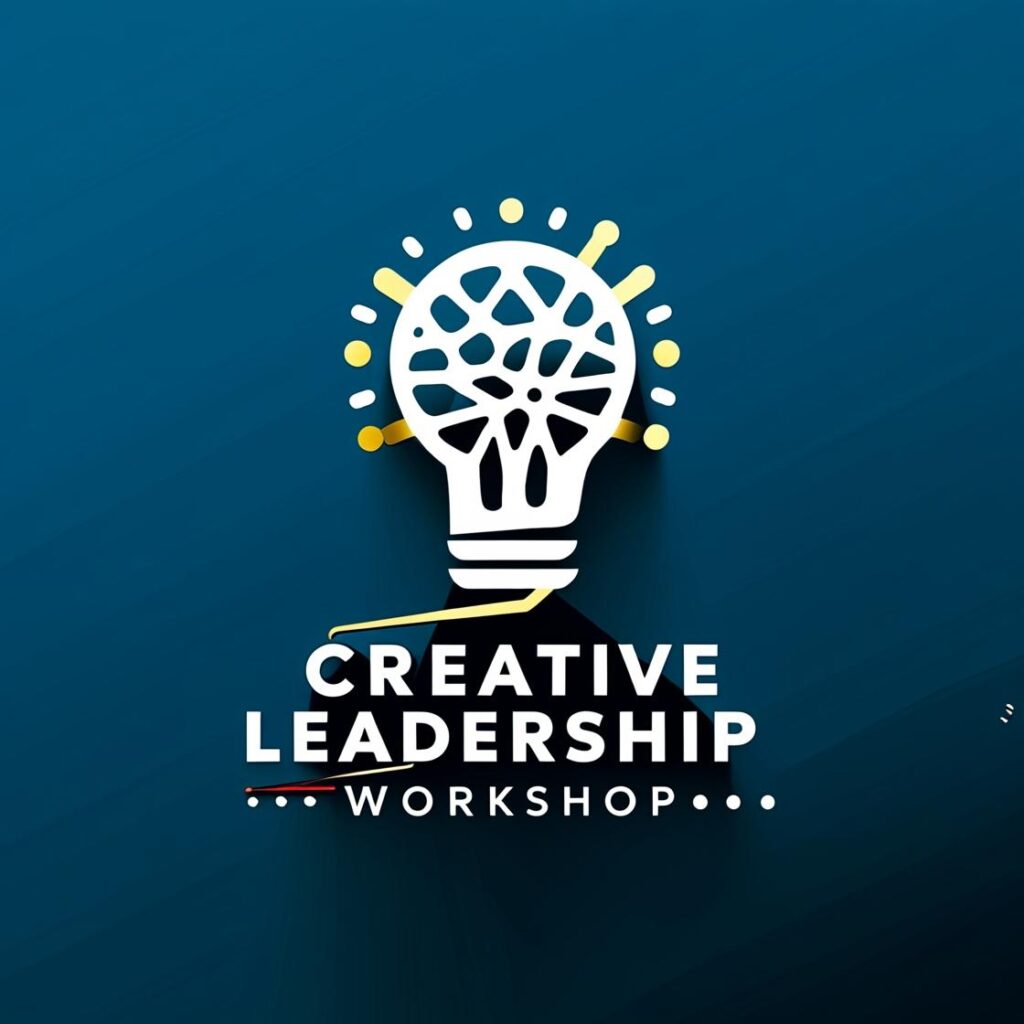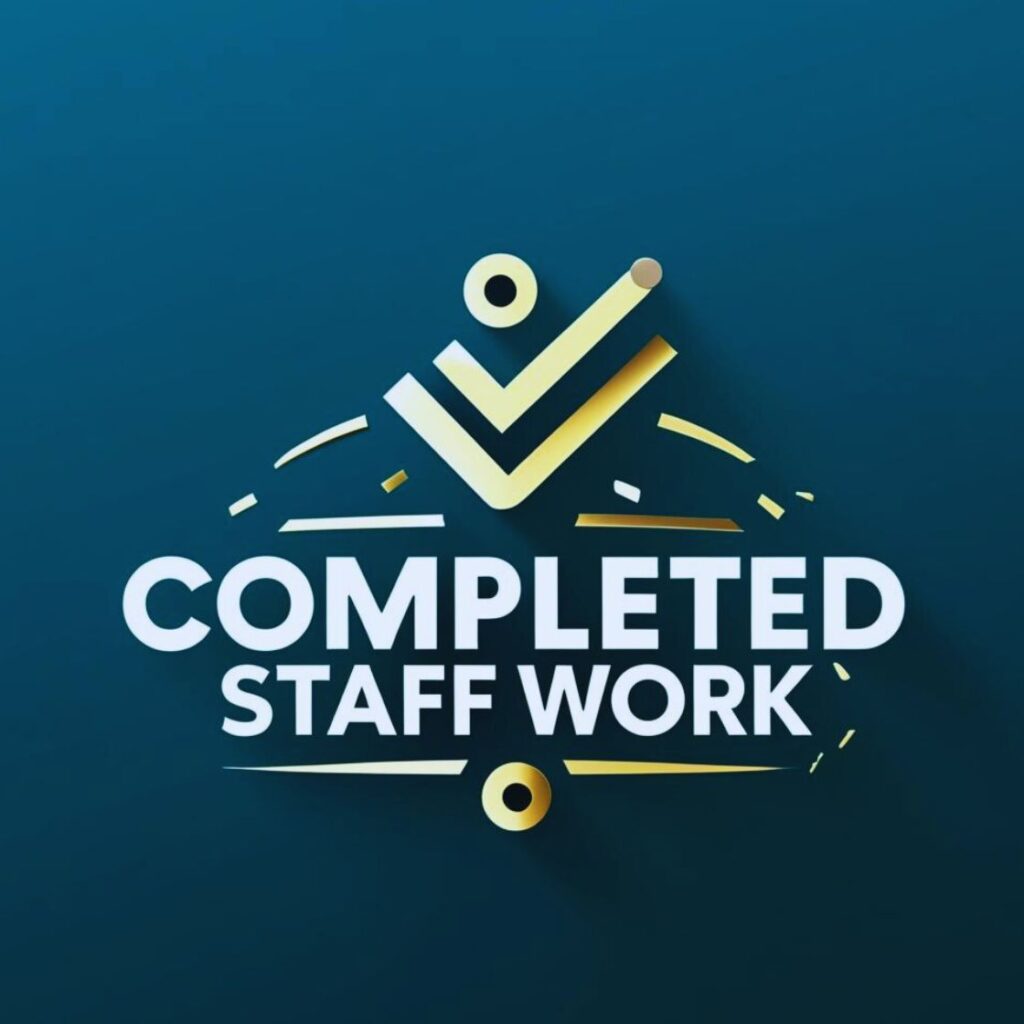You’ve probably seen it before. A small mistake happens at work — a missing report, a delayed task, a number changed just to make things look better. Nobody says anything. It’s easy to shrug it off. “Wala namang nakapansin.”
That’s how integrity at work begins to slip — not in scandals or headlines, but in small, quiet moments when doing the right thing feels inconvenient.
I’ve been there. Years ago, I led a team where one of my staff hid a mistake to protect her record. She wasn’t bad. In fact, she was hardworking and kind. But that small cover-up shook the trust in our team. I realized then that integrity isn’t about perfection. It’s about courage — the courage to tell the truth even when it hurts.
Since then, I’ve worked with hundreds of leaders and organizations. And every time I ask what makes great teams stand out, the answer is never about talent, technology, or even training. It’s always about integrity — people who do what’s right even when no one’s watching.
So let’s talk about that. What does integrity at work really mean for us Filipinos? How can we live it — not just say it — in a culture that values relationships, loyalty, and harmony? And how can leaders create workplaces where people don’t just follow rules, but follow conscience?
Because when integrity is strong, trust follows. And when trust grows, everything else — performance, teamwork, and pride — rises with it.
What Integrity Means in the Filipino Workplace
When people talk about integrity at work, they usually mean honesty — telling the truth, keeping promises, not stealing. And yes, that’s a good start. But in the Filipino workplace, integrity runs deeper. It’s not just about being honest. It’s about who you are when no one’s looking, and how your decisions affect others.
I remember a conversation I had during one of my leadership workshops. A supervisor raised her hand and asked, “Sir Jef, what do I do if my boss tells me to approve something I know isn’t right?” The room went quiet. Everyone was thinking the same thing. I told her, “Integrity at work doesn’t mean defying your boss. It means finding the courage to tell the truth with respect — to speak with honesty, not arrogance. Because real integrity protects people, even the ones making mistakes.”
That’s where our Filipino values come in. We’re not just individuals at work. We carry our loob — our inner self — and our kapuwa — our sense of shared humanity. Integrity connects both. When we act with kagandahang loob, we don’t just follow rules; we act with good will and sincerity. We do what’s right because we care, not because someone is watching.
When I talk about may paninindigan, I’m not talking about stubbornness. I’m talking about strength of character — that steady voice inside you that says, “Ito ang tama.” It’s what helps you speak up when silence would be easier. It’s what keeps you fair even when favoritism would be faster. It’s what reminds you that reputation is built on small acts of honesty done consistently.
Filipinos value this deeply. A study by Milieu Insight in 2022 found that 78% of Filipino employees consider honesty the most important trait at work. This is higher than responsibility or even quality of work. That’s not surprising. We grew up hearing “Ang pagiging tapat ay kayamanan.”
But it’s one thing to believe in honesty; it’s another to practice it when there’s pressure, when money’s involved, or when everyone else seems to be cutting corners.
Integrity at work is tested when it’s inconvenient. When you’re tired and tempted to take shortcuts. When you want to impress your boss but know the numbers aren’t right. When you see something wrong and wonder if speaking up will cost you your job.
In those moments, integrity isn’t a policy. It’s a choice — your choice. And every choice, big or small, builds your character or chips away at it.
So if you want to lead with credibility, start there. Ask yourself, What would I do if no one will ever find out? That’s where integrity begins.
Integrity as Good Will and Sincere Motivation
I once worked with a government team that had all the right systems on paper—policies, procedures, audits. Everything looked proper. But during lunch breaks, I’d hear quiet comments like, “Bakit ako magsasakripisyo kung yung iba hindi rin sumusunod?”
Integrity at work isn’t built by compliance. It’s built by kalooban—the heart behind every decision.
In Filipino culture, that heart is called kagandahang loob. It means “beauty within,” but it’s more than kindness or niceness. It’s the moral beauty of a person who means well and acts out of genuine good will. Integrity doesn’t just ask what you do; it asks why you do it.
When you have kagandahang loob, you do good because it’s right—not because you’ll get a bonus, a raise, or praise. You help a coworker not to impress your boss, but because you care. You speak up about a mistake not to make others look bad, but because you want the team to do better.
There’s another word tied to this: kusang loob—doing something freely, without being told. When you act with kusang loob, you’re not waiting for orders or supervision. You take initiative because integrity isn’t forced—it’s chosen.
I remember a staff member in one of my past projects. He was young, new, and quiet. One afternoon, he came to my office and handed me an envelope. Inside was ₱2,000. “Sir, sobra po yung binayad sa akin ng supplier.” No one would have noticed if he kept it. It wasn’t a huge amount, and no report would’ve revealed the discrepancy. But he gave it back—no hesitation, no drama. That’s kagandahang loob. That’s integrity in action.
When I told the story to his team, something shifted. People began to see that integrity isn’t about big heroic acts—it’s about small, sincere ones. It’s about kusang loob—the unseen decision to do good without being asked.
Compare that with what often happens in our offices:
- Someone helps only if there’s credit.
- People act nice when the boss is around.
- Teams follow rules out of fear, not belief.
Those actions might look proper, but they lack sincerity. They lack loob. And without kagandahang loob, integrity becomes mechanical—a checklist, not a conviction.
True integrity at work flows from within. It’s quiet, but powerful. It builds trust because people can feel sincerity. You don’t need to announce it; others sense it in how you speak, how you listen, and how you act.
So if you want to strengthen integrity in your team, start by asking: “Are we doing this because it’s right—or because it looks right?” That small question, asked daily, can change everything.
Integrity as Accountability to the Community and Public Trust
When I ask leaders what “integrity at work” means to them, they often say, “It’s about being honest,” or “It’s about doing your job well.” And that’s true—but not complete. In the Filipino context, integrity doesn’t end with the self. It extends to kapuwa—the shared life we have with others.
We don’t work in isolation. Every decision we make, every corner we cut, every promise we break—someone else feels it. Integrity, then, is not only personal honesty. It’s public accountability.
I once worked with a local government unit where employees handled small permits and community documents. One morning, a resident came in, tired from waiting, and whispered, “Sir, paano kung magbigay na lang ako para mapabilis?” It was the kind of question many civil servants hear quietly every day.
The officer beside me looked at her and said, calmly but firmly, “Ma’am, bawal po ‘yan. Pero tutulungan kita—sundan po natin ‘yung proseso, tapusin natin ngayon.”
That, for me, was integrity in motion. No sermon. No embarrassment. Just doing what’s right and fair, guided by respect for the citizen and the system. That’s what kapuwa looks like at work—respecting others by staying accountable to them.
The 1987 Philippine Constitution says, “Public office is a public trust.” But I believe that applies to every kind of work, public or private. When someone gives you their trust—whether it’s a client, a student, or a colleague—you owe them integrity. You owe them fairness, transparency, and responsibility.
Our culture, rich in warmth and loyalty, can also test integrity. Utang na loob (debt of gratitude), pakikisama (smooth relationships), and padrino (patronage) can sometimes pull people in opposite directions. I’ve seen good employees struggle because doing the right thing meant disappointing someone they respected.
One government manager once told me, “Sir, mahirap tumanggi kung kamag-anak mo.” I nodded. “Oo. Pero minsan, tumatanggi ka hindi dahil wala kang malasakit—kundi dahil gusto mong itama ang sistema.”
Integrity doesn’t mean rejecting relationships—it means redefining them. True pakikisama protects others from harm. True utang na loob repays kindness with honesty, not blind loyalty.
When we choose fairness over favoritism, we don’t destroy relationships; we strengthen them. Because kapuwa is about doing good for the community, not just for our circle.
In organizations I’ve trained, I’ve seen the power of integrity ripple outward. When one manager takes a stand—refusing to approve a questionable deal, returning excess funds, or reporting a conflict of interest—others begin to follow. It spreads. People start saying, “If he can do it, I can too.”
That’s the beauty of kapuwa. Integrity is contagious when people see it done with courage and compassion.
In the end, integrity at work is not just about your image—it’s about your impact. It’s how your decisions shape the people who trust you. It’s how your honesty protects the dignity of others.
And if you lead others, it’s remembering this: Your title gives you authority, but your integrity gives you credibility. Lose one, and the other means nothing.
Integrity as Consistency and Competence
Let me tell you about a manager I once coached. He was brilliant—quick thinker, great strategist, loved by his team. But every few weeks, he’d change direction. One week, he’d push for innovation; the next, he’d criticize the same ideas he once encouraged. After a while, his team stopped taking him seriously. They’d nod during meetings but whisper afterward, “Hintayin mo lang, magbabago ulit ‘yan.”
That’s when it hit him: his problem wasn’t intelligence—it was consistency. And that’s what integrity at work really demands.
Integrity is not only about telling the truth; it’s about being the same person in every situation—honest, fair, and dependable. People must know where you stand. When your words and actions align, people trust you. When they don’t, no speech, no policy, no training can fix it.
I’ve seen this play out in both private companies and government offices. Some leaders declare “transparency” as a value—but keep decisions behind closed doors. Others talk about “employee empowerment” but punish those who speak honestly. The disconnect weakens morale.
As one employee once told me in a feedback session, “Sir, we don’t expect perfect leaders. We just want leaders who mean what they say.”
That’s the core of integrity. Consistency between words and behavior. It’s also competence in the truest sense—doing your job with honesty, reliability, and excellence. A competent employee who lacks integrity may deliver fast results today, but they damage trust tomorrow.
A 2019 study on leadership integrity defined it this way: “Integrity is the consistency of actions, values, methods, and outcomes.” In short, your principles must show up in your performance.
In my own experience working with teams, I’ve learned that consistency does something powerful: it builds confidence. When a leader consistently does what’s right, people feel safe to do the same. They stop guessing. They stop pretending. They start showing up fully.
Here’s an example. During one project, we had to decide whether to keep a client who was pressuring us to “adjust” some numbers. I could’ve justified it as business pragmatism. But I knew—if I said yes, I’d lose something more important than a client. I told my team, “We’ll walk away.”
We lost that project, yes. But months later, that same client came back. He said, “We trust you. You were the only ones who told the truth.”
That’s what integrity builds: credibility that compounds. It’s not flashy. It’s not instant. But it lasts.
So if you’re a leader, ask yourself:
- Do I mean what I say?
- Do my people see the same values in how I decide, not just in what I declare?
- Can they trust me to do what’s right even when it costs something?
Because when you do, you earn something no title or position can give—the confidence of others. And in any organization, that’s the real foundation of competence.
How Leaders Promote Integrity in the Workplace
Whenever I’m invited to run leadership workshops, one of the most common questions I get is,
“Sir Jef, how can I make my people more honest?”
I usually smile and answer, “You can’t make people honest. But you can make it easier for them to stay that way.”
Integrity at work doesn’t grow by command. It grows by example, structure, and support. And it starts with leaders.
1. Leading by Example
People don’t copy words—they copy behavior.
You can talk about values all day, but if your team sees you cut corners, they’ll learn that shortcuts are okay.
I once worked with a company where the president personally walked to the accounting office to sign a reimbursement check that wasn’t his—it belonged to an employee he’d overpaid. He said, “Kung ako nagsimula ng mali, paano pa tayo magkakaroon ng tama?”
He didn’t give a speech on integrity. He simply showed it.
Here’s what I’ve learned from years of working with managers and executives:
The simplest ways to promote integrity are also the most powerful.
| Leadership Action | Example in Action |
|---|---|
| Model Integrity Daily | Be transparent and fair. When you make a promise, keep it. When you make a mistake, admit it. |
| Do the Right Thing Unseen | Don’t wait for praise. Integrity means doing the right thing even when no one’s watching. |
| Develop Personal Accountability | Practice self-reflection. Before you correct others, ask: “Am I doing this myself?” |
| Be Transparent in Decisions | When people question a decision, explain your reasons. Openness turns suspicion into trust. |
In one leadership retreat, I asked a group of managers to write down the names of people they admired. Most wrote not “smart” or “powerful” people—but “leaders who walked their talk.”
That’s the mark of integrity. It doesn’t demand perfection. It demands honesty.
2. Building Systems that Protect Integrity
Integrity should not rely on personality alone. It should live in your organization’s systems—its policies, processes, and culture.
Some leaders think of rules as restrictions. But in truth, ethical systems protect good people from bad pressure. They help employees make the right choice even when they’re afraid to.
I’ve seen this work through formal integrity frameworks—compliance programs and HR policies that guide behavior.
Here’s what strong frameworks include:
A. Compliance Programs That Work
- Written policies – Everyone should know the rules.
- Clear responsibility – Designate ethics or compliance officers.
- Ethics training – Teach employees how to handle real-life dilemmas.
- Open communication – Create channels to ask ethical questions safely.
- Regular audits – Check not just performance, but fairness.
- Fair enforcement – When rules are broken, apply consequences evenly.
- Prompt correction – Fix issues before they grow.
These aren’t just for big corporations. Even small teams can adapt them—start with clear standards, open discussions, and fair accountability.
B. HR and Policy Interventions
Integrity must be built into every stage of employment—from hiring to promotion.
- Code of Ethics: Write a code that includes everyday examples—real decisions, not abstract slogans.
- Ethics Training: Talk about tough choices. Ask, “What would you do if…?” and discuss as a team.
- Recruitment: Hire for integrity, not just skill. Ask values-based questions.
- Onboarding: Introduce the organization’s ethical commitments from Day 1.
One HR head I worked with said, “If integrity isn’t part of how we recruit, it won’t be part of how we lead.” She was right. Culture starts at entry.
3. Motivation and Accountability Systems
Integrity also needs reinforcement. You can’t just tell people to “be good.” You have to design motivation and accountability into the environment.
Here’s what works:
| Mechanism | How It Looks in Practice |
|---|---|
| Reward Ethical Behavior | Recognize employees who speak up or tell the truth under pressure. Make honesty visible. |
| Enforce Fair Sanctions | When someone breaks trust, act quickly and fairly. Protect justice, not reputation. |
| Improve Motivation Practices | Create a supportive environment. Train leaders to praise good behavior, not just good results. |
| Implement Reporting Mechanisms | Set up confidential feedback lines or anonymous hotlines. Make it safe to report misconduct. |
| Integrate Integrity into KPIs | Include ethical conduct in performance reviews. Reward courage, not compliance. |
I once helped a company launch a monthly “Integrity Star” award. It wasn’t about being perfect—it was for people who made honest, tough choices.
The impact? Conversations changed. People began saying, “Integrity matters here.”
Because it does.
When integrity is measured, rewarded, and protected, it grows.
4. Government and Public Sector Reform
In the public sector, integrity carries the weight of public trust.
Dr. Alex Brillantes and Dr. Maricel Fernandez describe it as a four-pronged reform:
- Reform institutions – Clarify processes, increase transparency, and conduct regular audits.
- Reform mindsets – Build moral intelligence and positive work attitudes.
- Reform leadership – Show political will and lead by example.
- Reform citizen engagement – Empower citizens to hold leaders accountable.
These same principles apply to corporate leaders. The goal isn’t just to avoid corruption—it’s to restore confidence. Whether in government or business, people follow leaders who can be trusted.
If there’s one truth I’ve seen over the years, it’s this: Integrity at work doesn’t happen by accident. It’s designed. It’s designed by leaders who live it. By systems that protect it. And by cultures that celebrate it.
When those three align, integrity stops being a poster on the wall—it becomes the pulse of the organization.
Everyday Integrity: Small Acts That Build Trust
People often think integrity at work is about big decisions—turning down bribes, exposing corruption, confronting unethical leaders. But most of the time, integrity shows up in the quiet, everyday choices that no one celebrates.
Let me tell you a story.
A few years ago, after a long workshop, my assistant and I stopped by a café to grab a snack. When I paid the bill, the cashier gave me change for a ₱1,000 bill instead of ₱500. It wasn’t a huge mistake—but it was in my favor.
For a split second, I hesitated. I was tired. No one saw it happen. But my assistant was watching.
I smiled, handed the money back, and said, “I think you gave me too much.” The cashier’s shoulders dropped in relief. “Salamat po, sir.” My assistant grinned and said, “Integrity coach ka nga talaga, sir.”
We laughed—but that moment reminded me: integrity at work starts in the small things.
It’s easy to talk about ethics when the stakes are high. But it’s the daily habits that define who we are—the promises we keep, the rules we follow even when they’re inconvenient, the people we treat with fairness even when no one’s watching.
Here are a few small ways I’ve seen people practice integrity that changed the culture of their teams:
- Being on time — because respect for others’ time is honesty in action.
- Finishing reports accurately — not adjusting numbers to “look good.”
- Admitting mistakes quickly — not waiting for someone else to find them.
- Speaking up with respect — not joining gossip or blame games.
- Returning what isn’t yours — even if it’s just a pen, a receipt, or five pesos.
- Keeping your word — especially when it’s hard.
I once coached a young manager who struggled with deadlines. One day she told me, “Sir, I realized every time I say ‘I’ll send it tomorrow’ and don’t, I lose credibility.” She was right. That’s how trust erodes—quietly, in missed follow-ups and broken small promises.
Integrity isn’t about being perfect. It’s about being predictably trustworthy. When your team knows they can count on you, they’ll follow you—not because they have to, but because they want to.
In workshops, I often tell leaders: “You don’t teach integrity by telling stories about heroes. You teach it by living the story your people see every day.”
Because when you return that extra change, when you correct that typo in a report, when you say no to a convenient lie—you’re building something bigger than compliance. You’re building credibility.
And credibility, once earned, becomes your team’s greatest source of strength.
So don’t wait for a crisis to show integrity. Practice it in the routine. Because the habits you keep when no one’s watching become the reputation you carry when everyone is.
Integrity Wins in the Long Run
Not long ago, I worked with a company that was bidding for a big government contract. They had a strong proposal, a solid track record, and a great team. But a week before the final decision, someone whispered to the CEO that a “facilitator” could “help” secure the deal—for a small “fee.”
It wasn’t surprising. That’s how the game is often played. But the CEO looked at me and said, “Sir Jef, if we win it that way, we’ll never know if we deserved it.”
They declined the offer. They lost the contract.
At least, that’s what they thought.
Six months later, the agency called them again. The project had collapsed under the company that paid the “facilitator.” The CEO’s firm got another chance—and this time, they won it clean. When I visited their office, he smiled and said, “Sir, mas masarap pala ‘pag malinis ang pagkapanalo.”
That’s the truth about integrity at work. It doesn’t always win fast—but it always wins right.
When you lead with integrity, you may lose quick gains, but you build something more valuable: credibility that compounds. Clients remember it. Colleagues trust it. Teams rally behind it. And even competitors respect it.
Integrity, in the Filipino sense, is not about perfection—it’s about paninindigan. It’s about standing firm when shortcuts tempt you, staying honest when silence feels safer, and leading with goodwill when cynicism feels easier.
I’ve seen this again and again across organizations, from government offices to private firms: Leaders who act with integrity create workplaces people are proud to belong to. They attract others who want to work the same way. Slowly, the culture shifts—from compliance to conscience, from fear to trust.
And the reward? You sleep well at night. Your team works with pride. Your name becomes your guarantee.
When I look back at the best leaders I’ve met, none of them were the loudest or the smartest. They were the ones who were consistent, fair, and honest—the ones who did the right thing even when no one was clapping.
So, if you’re a leader, here’s my challenge: Start small. Speak the truth even when it’s uncomfortable. Return what isn’t yours. Stand by your team when they tell the truth. Be transparent in your decisions.
Because in the long run, integrity outlasts talent, titles, and even success.
You don’t have to be perfect to lead with integrity. You just have to keep choosing what’s right—one decision, one day, one quiet moment at a time.
That’s how trust is built. That’s how cultures change. And that’s how leadership lasts.



